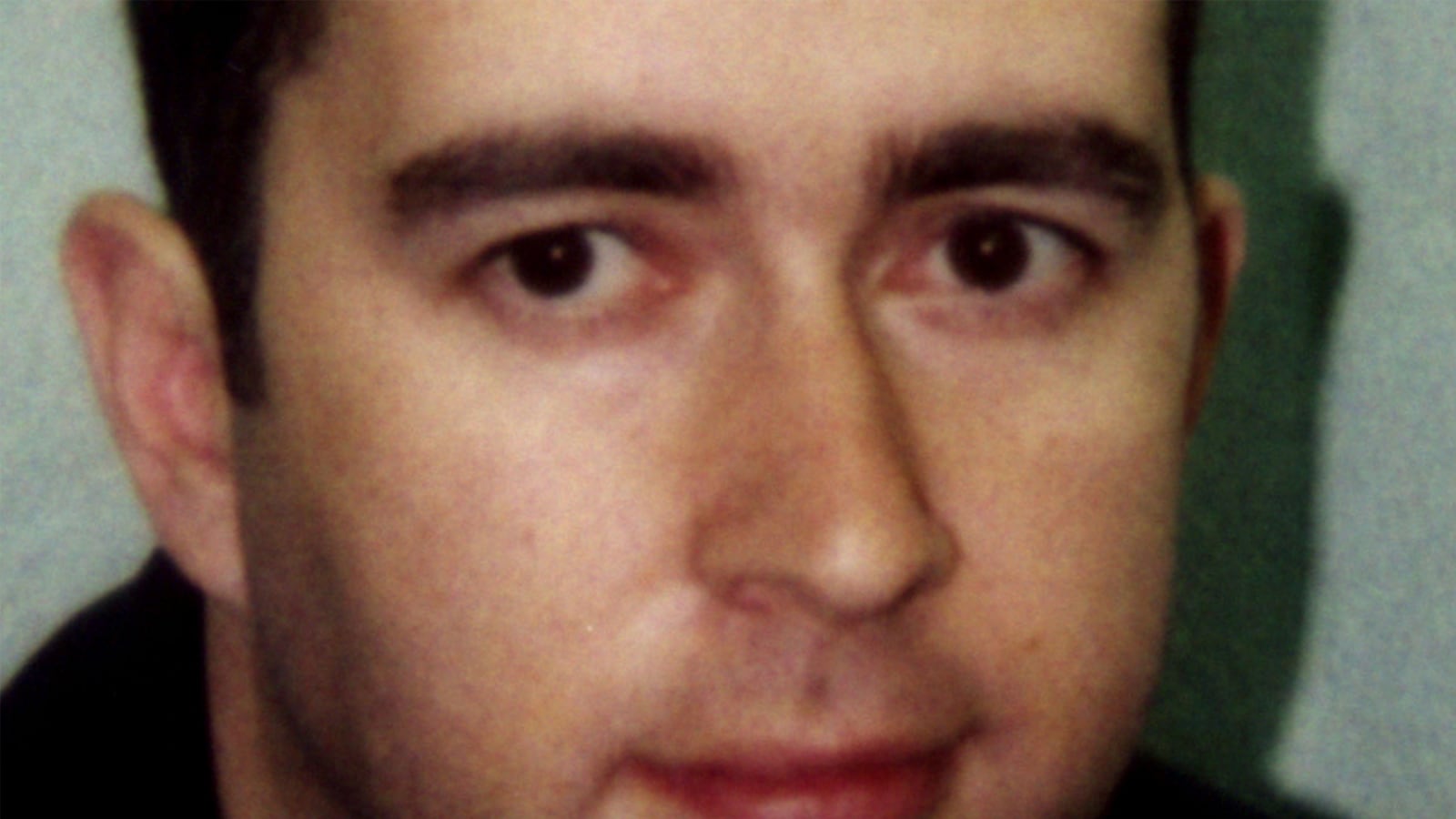According to The Puppet Master: Hunting the Ultimate Conman, Robert Hendy-Freegard is a 49-year-old British fraudster who deceives, swindles, and psychologically manipulates and abuses females for his own profit. A reprehensible criminal who poses as an MI5 agent in order to gain the trust—and then cooperation, and money—of men and women, he’s spent the past three decades tricking a variety of victims into completely giving themselves over to him, in the process costing them their careers, families, friends, and financial well-being. Worse, though, is that directors Sam Bernstead and Gareth Johnson’s three-part Netflix docuseries reveals that he’s still at large, continuing to prey upon the vulnerable in European parts unknown.
Premiering Jan. 18 on Netflix, The Puppet Master: Hunting the Ultimate Conman focuses on two parallel stories involving Hendy-Freegard. The first begins in 1993 with John Atkinson, a student at England’s preeminent Harper Adams Agricultural College, where he befriended a barman who went by the name Rob. The two struck up a friendship, at which point Rob apprised John that he was in fact a spy, and that he and his superiors had detected an imminent Irish Republican Army threat located right in John’s close circle of acquaintances. To handle this crisis, Rob informed John that they had to promptly go on the run—and, moreover, that he had to convince his two housemates, Maria and Sarah, to join them, all without telling the women the truth about why they were fleeing.
Buying this espionage narrative hook, line and sinker, John agreed to trick Maria and Sarah into thinking that he had terminal cancer, and that he wanted them to accompany him and Rob on a farewell road trip. It wasn’t until later on this journey that Rob and John admitted that John was healthy, and that the real reason they were skulking around England was because Rob was protecting them from impending danger. This was also a big, heaping load of bullshit. Yet even after Rob failed to furnish his MI5 credentials to Sarah, she went along with this tall tale, staying off the grid, moving between a variety of “safehouses,” and only briefly materializing to see her mom and dad, the latter of whom—Peter Smith—had unsurprisingly grown very concerned about his daughter’s sudden uncharacteristic behavior.
As The Puppet Master: Hunting the Ultimate Conman lays out this strand, it periodically fast-forwards to 2011 to focus on Jake and Sophie Clifton, English siblings whose lives were turned upside-down less by their parents Sandra and Mark’s divorce then by Sandra’s subsequent online dating life, which led her into the arms of a man named David. Even as young kids, both Jake and Sophie could tell that something was off about David, such as when, during a vacation drive to Spain, David acted extremely cagey about both his surname and his passport. Their suspicions were soon proven correct, with David alienating Jake (who moved out to live with his dad), attempting to cause a rift between Sophie and her father, and eventually exerting a domineering influence over Sandra that no one could explain, but everyone suspected was far from healthy.
In striking recent footage, Mark returns to the house he once shared with Sandra to find an industrial size padlock on Sandra and David’s bedroom door—a sure sign that David was keeping Sandra captive. Nonetheless, Mark’s discovery is too late to change things, since Sandra and David have been missing for the past seven years, during which time Sophie and Jake have only sporadically chatted with their mother, and only seen her via a 2020 online court hearing over the right to Sandra’s deceased parents’ home. The kids don’t know where Sandra is, although more painful still is that when police did momentarily locate her in 2015, she confessed that she knew who David really was, and that she had no intention of leaving him.
David and Rob are, of course, the same person: Hendy-Freegard, who convinced Sarah to remain in his company for almost a decade, as well as ensnaring numerous other women in his dastardly scam. Those included American Kim Adams, whose parents were told that their daughter was enrolled in spy school. Already on Hendy-Freegard’s trail, Scotland Yard Detective Sergeant Bob Brandon partnered with FBI Special Agent Jaclyn Zappacosta to bring an end to the conman’s schemes, which were all predicated on convincing his lovers’ friends and relatives (and business associates) to hand over money for make-believe reasons. Brandon and Zappacosta’s pursuit culminated—or so they thought—on May 23, 2003, with an airport sting to draw Hendy-Freegard and Adams out of hiding that directors Bernstead and Johnson recount via thrilling surveillance footage. Hendy-Freegard was subsequently found guilty at trial and sentenced to life in prison, but as evidenced by Jake and Sophie’s plight, that conviction didn’t stick, much to everyone’s chagrin.

Robert Henry-Freegard
NetflixNew interviews with these various individuals lend the proceedings a first-hand immediacy, as does editors Hamit Shonpal, Tom Parsons and Julian Hart’s rapid-fire cutting, which amplifies the action’s anxiety. Like so many contemporary docuseries, Bernstead and Johnson’s investigation relies too heavily on dramatic recreations to fill in gaps that could have just as easily been handled through straightforward non-fiction means. Still, their assured stewardship largely keeps things lean and energetic. In fact, The Puppet Master: Hunting the Ultimate Conman would have benefited from a bit more material—specifically, some questioning of Sarah and John about how they could have fallen for a ruse that, no matter Hendy-Freegard’s persuasiveness, must have invariably seemed dodgy after a few years of roaming around Europe trying to evade imaginary adversaries.
If not quite probing enough, their non-fiction effort paints an unnerving portrait of a conniving madman’s use of lies and isolation to dupe and control innocent targets. That Jake and Sophie (with dad Mark’s help) are still determined to find and rescue Sandra from Hendy-Freegard’s clutches also lends it a chilling inconclusiveness that speaks to the difficulty of identifying, apprehending, and prosecuting villains whose hold over their captives often has little to do with physical restraint and everything to do with canny psychological duplicity.







